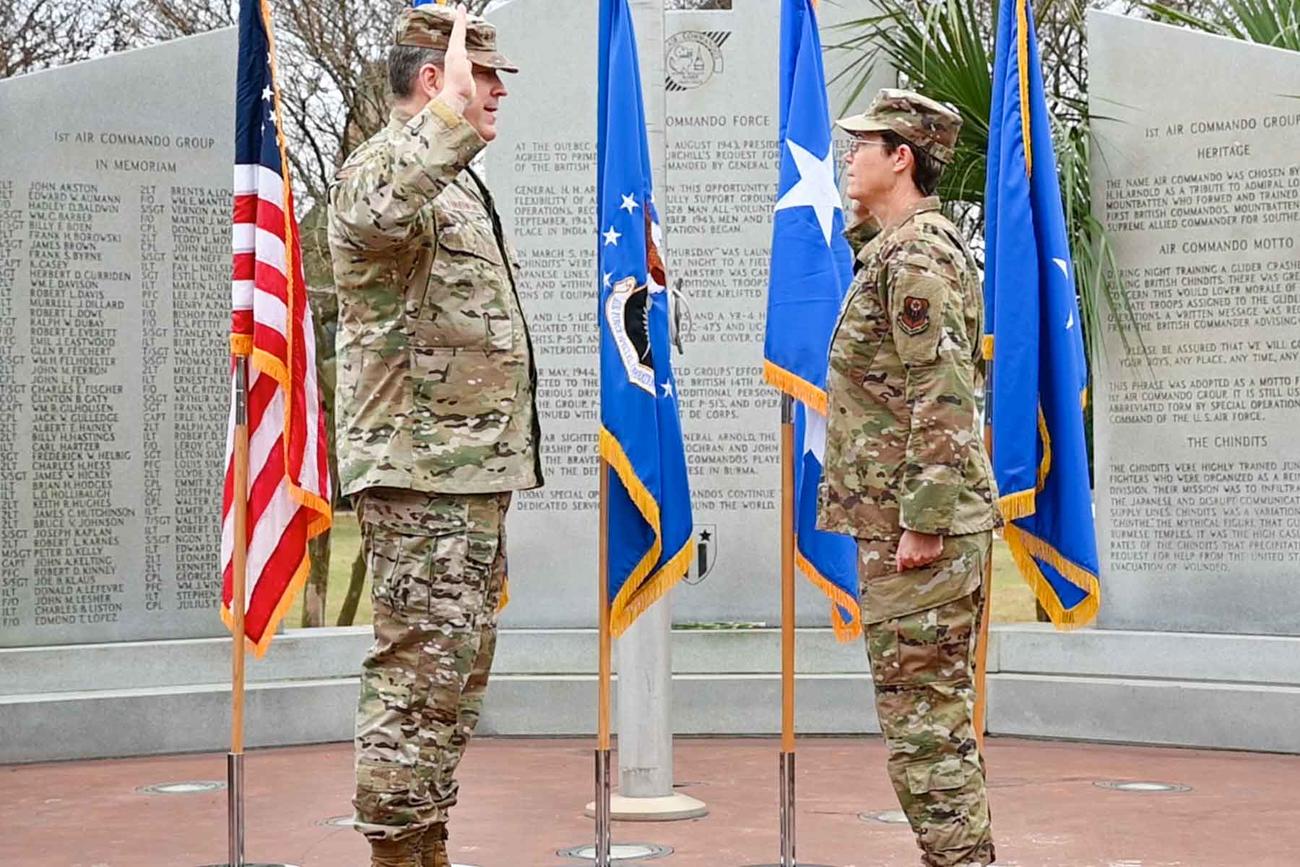
The Senate made more progress this week on clearing the backlog of officers whose promotions were delayed for months by Sen. Tommy Tuberville, R-Ala., but it remains unclear whether senators will be able to approve the rest of the officers awaiting confirmation by the end of the year.
Promotions for seven generals and admirals were approved by the chamber. Meanwhile, the Senate also passed a bill that would give all 450-plus delayed officers back pay for the time they were waiting for promotions. The House would also have to pass a back-pay bill it’s considering for the legislation to become law.
“Just in time for the holidays, the Senate is giving our military, our military families a present — the justice and back pay they so richly earned and deserved,” Senate Majority Leader Charles Schumer, D-N.Y., said on the Senate floor Thursday ahead of approving the bill. “Finally, we’re able to right the wrong of Sen. Tuberville’s illogical, hurtful and dangerous holds and the massive impact the holds had on military families.”
Read Next: Army Changes Course Again and Extends Rules Allowing NCOs to Be Promoted Before Schooling
The Senate bill, which was approved by unanimous consent Thursday evening, would give officers delayed by Tuberville a raise and benefits retroactive to 30 days after they were first nominated. Tuberville first started his blockade on senior military promotions in late February.
Without the bill, officers’ raises will be effective only from the date the Senate approved their promotion, meaning those who were waiting for months to be promoted would lose out on thousands of dollars they would have earned if the military confirmation process were running as quickly as normal.
It’s unclear whether or when the House will take up the bill, but a bipartisan group of lawmakers is also pushing for it in the lower chamber. The earliest the House could vote on it would be January since the chamber left for its holiday break on Thursday afternoon.
The Senate bill, which Tuberville co-sponsored, is part of Congress’ cleanup effort after Tuberville last week relented in his 10-month blockade of general and admiral promotions. Tuberville was holding up senior military promotions over his opposition to the Pentagon’s abortion travel and leave policy.
In addition to approving the back-pay bill this week, the Senate confirmed the seven generals and admirals in voice votes Wednesday evening. The latest batch of confirmations included three officers whom Sen. Eric Schmitt, R-Mo., said last week he would delay over his objections to military diversity initiatives.
Twenty other senior officers still need to be confirmed, including the 11 four-stars whom Tuberville has said he would continue to delay, according to the Senate’s nominations website.
While the Senate was originally scheduled to begin its holiday break at the end of this week, Schumer is keeping the chamber in session next week so negotiators can continue working on a deal to fund Ukraine aid in exchange for U.S. immigration law changes. That means an extra week for the Senate to try to finish confirming military nominees too.
But with so much energy going to getting an immigration deal right now, the exact plans for confirming the remaining nominees appear up in the air. Senate Armed Services Committee Chairman Jack Reed, D-R.I., told reporters Thursday that, while Schumer is committed to bringing the officer nominees to the floor, he is also “thoroughly involved” in the immigration and Ukraine aid talks.
“I’m Irish. I’m never confident,” Reed quipped when asked whether he’s confident the nominees will come to the floor next week.
Officers who aren’t confirmed before the end of the year would have to be renominated and go through the Armed Services Committee process again unless there is consent among senators to roll over the nominations to the new year.
Last week, Reed expressed hope that consent would come. And other Democrats who were highly critical of Tuberville’s hold are also downplaying concerns about having to wait until the new year to finish confirmations.
“I do believe there’s a good chance we’ll get those done before we leave here, but if not, I would suspect that we would tackle them early in 2024,” Sen. Tim Kaine, D-Va., an Armed Services Committee member, told reporters on a conference call Thursday. “I don’t think the difference of a couple of weeks on those is going to pose major challenges, but we will try to get them done as quick as we can.”








